Mosul's citizens face 'frenzy' and fear of IS
- Published
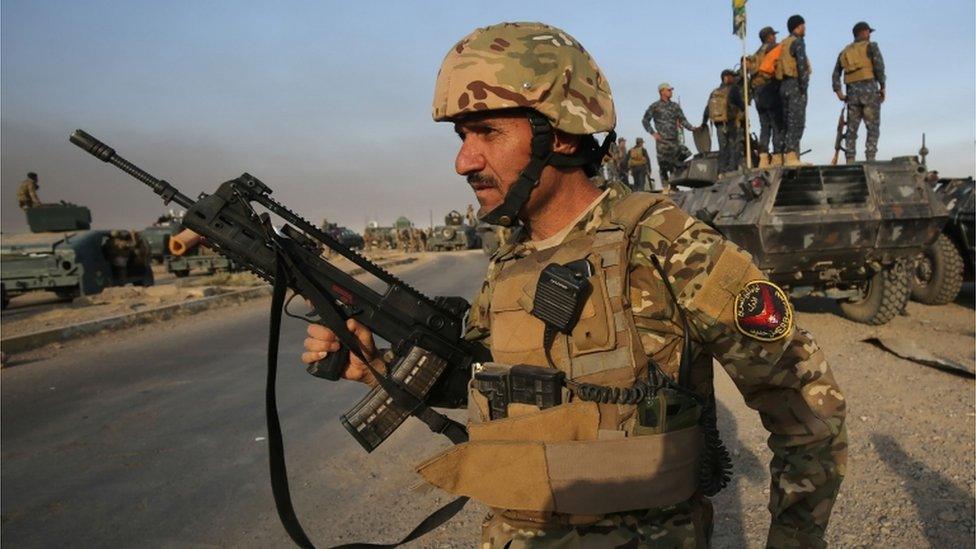
As Iraqi forces close in on Mosul, the city's residents face the anger of the Islamic State authorities
The forces of so-called Islamic State, now besieged in Mosul, are in a state of "frenzy" inside the city, increasingly blaming and terrorising the local population and preparing to conceal themselves if defeated.
These are the close-up views provided by academics from Mosul, who have maintained covert contacts linking the city with the outside world.
They claim that foreign fighters, once visible in Mosul, have disappeared from the city.
"The frontline foreign fighters are rarely there. They've vanished. The houses they occupied are vacant," said one source, speaking anonymously.
"They're leaving it to the local fighters, who will become the scapegoats."
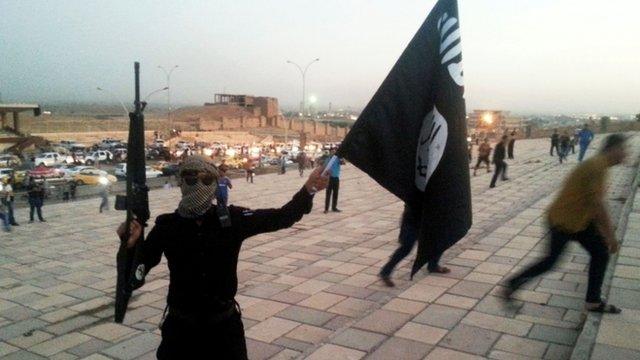
Islamic State forces have occupied Mosul for more than two years - and are still asserting control
The IS leadership in the city is also described as "melting away".
"It's a lost cause. It's the end of days for them," says one of the scholars from Mosul, who have been supported by the New York-based Institute of International Education, which once rescued academics in Europe from the Nazis.
They also talk of "changed tactics", with IS fighters trimming their beards and changing the way they dress to look more like the civilian population - with Mosul residents assuming this is to make them less distinguishable if the city is overrun.
Cars in the city have been forced to switch to Islamic State number plates, says one of the academics. The fear from civilians is that this could make all cars vulnerable to an air strike or put them at risk of being attacked in the battle for the city.
So far, air strikes have been carefully targeted at government buildings and military sites, according to this view from the city. Another says that this accuracy might seem "impossible" but so far the attacks have been on "confirmed" targets.
Mosul University, once one of the biggest universities in the Middle East, had been kept open by the IS authorities when they seized the city in 2014.
It had raised questions about whether its laboratories were being used to develop weapons, including for chemical warfare, which could be used in battle or against civilians.
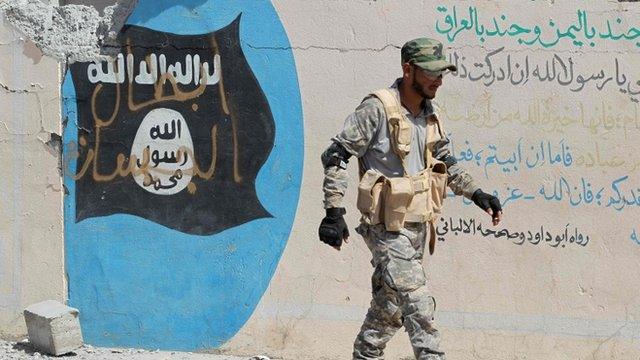
Villages around Mosul have been regained from IS
But sources now say that this is "no longer an issue" as the university has been pulverised by air strikes.
"The university is completely inoperative and air strikes have made it a difficult place to go. Most of the buildings have been brought down, it's virtually gone. The laboratories are destroyed."
It is expected there will be "chlorine rockets", but doubts about anything more sophisticated.
Another source says that "Daesh used the university to store some weapons" and had blocked access to some sections of laboratories.
"It is believed that they used laboratories for terrorist purposes, but it is almost impossible to confirm such claims."
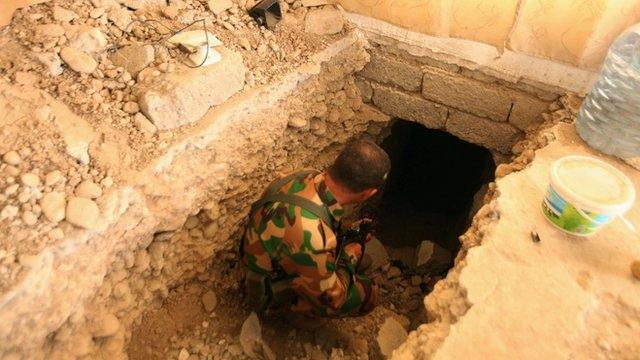
Peshmerga forces inspect a tunnel used by Islamic State east of Mosul
But it's assumed that the laboratories would have had chemicals - and that the IS forces might have carried out experiments, such as adding chemicals to explosives.
But the destruction of the university is claimed to have stopped any further weapons development.
Although there is a claim that "Daesh insurgents are still inside the university to 'protect' it from any emergency situation".
As the Iraqi government forces, militias and Kurdish Peshmerga close in on the city, there are signs of deepening tensions between the IS regime and the local population, according to sources.
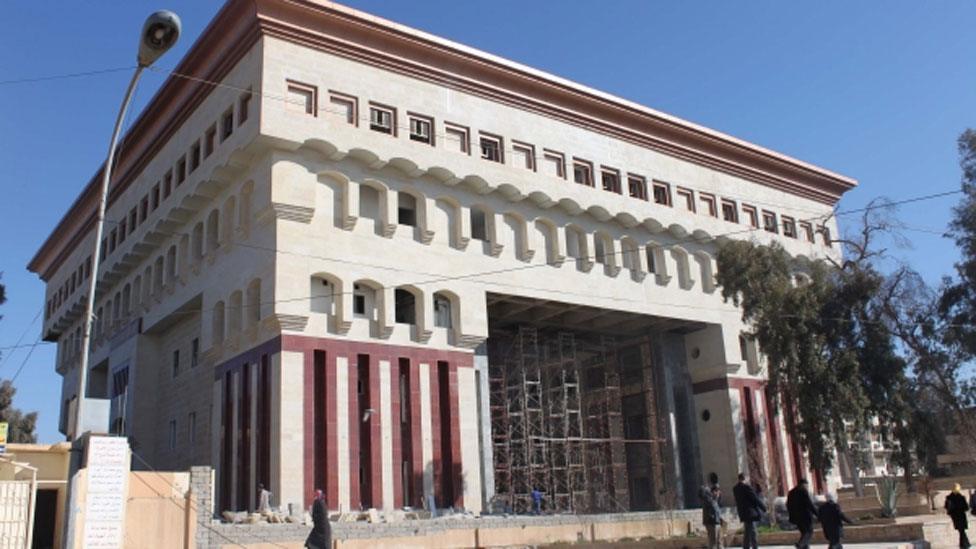
Mosul University before the IS occupation. There are claims that much of it has been destroyed by air strikes
The city's people are said to be in a "state of fear and terror". As IS has been targeted by the coalition forces, they in turn have "put their anger on the people" claiming that Mosul's residents are communicating with "hostile parties to Daesh".
At Friday prayers last week, a pro-IS preacher talked of how local people were "hypocrites" who had let down the "caliphate".
The religious police are also trying to assert their authority and show that nothing has changed in their control - and there have been more gruesome public executions of people claimed to be opponents or informants.
"They are trying to show they are in control of everything."
There is a culture of "false accusations" and another Mosul academic says: "Daesh continues to hunt 'offenders' and punish them heavily," which often means the death penalty.
The IS authorities have tried to clamp down on communications - but this doesn't seem to be effective.
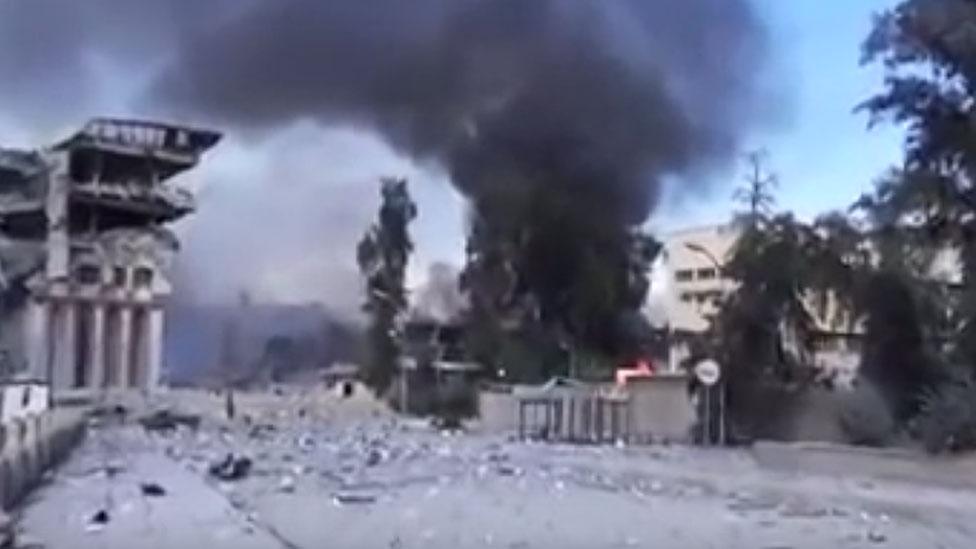
The aftermath of a US airstrike on Mosul University was shared on social media
There had been highly-monitored public points for internet access, but these too have been shut down.
But as the Iraqi forces advance on the city, internet providers have been boosting access in Mosul.
It means that in some parts of the city it has been possible to make contact, but this is being carried out in elaborate and extremely cautious ways to keep such links secret.
Such communication is described as being immensely dangerous, but there is a great hunger for news. A source says there is a "great risk of punishment", which would be execution.
There is said to be a huge amount of excitement about the approaching forces.
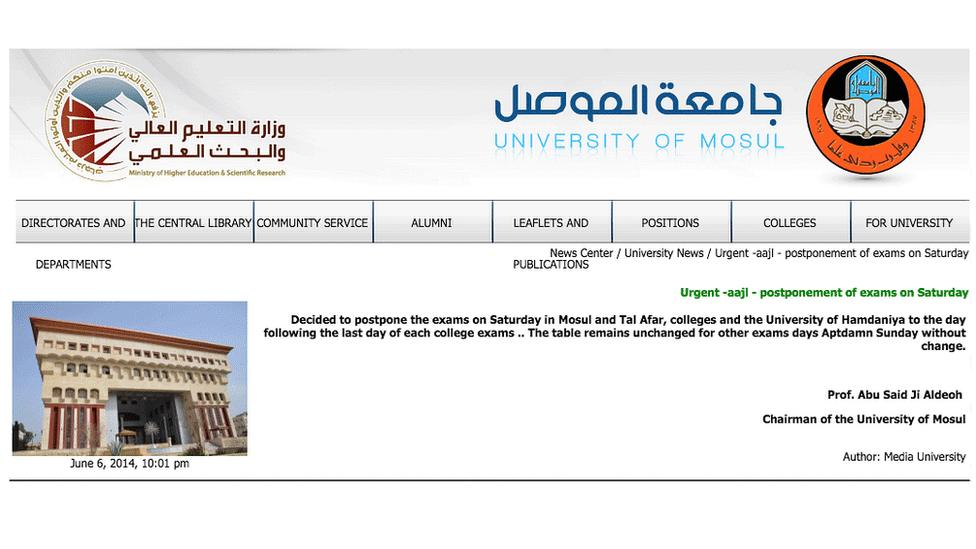
The last warning before IS took over in June 2014, announcing the postponement of exams
"People in Mosul are jubilant at the prospect of the city being liberated," says another local source.
This optimism, at the early stages of the battle, is said to outweigh fears of the loss of civilian lives and the destruction of buildings.
Tactics being used by the IS forces, such as digging tunnels, are seen as likely to be ineffective - and there is an expectation that they will be defeated.
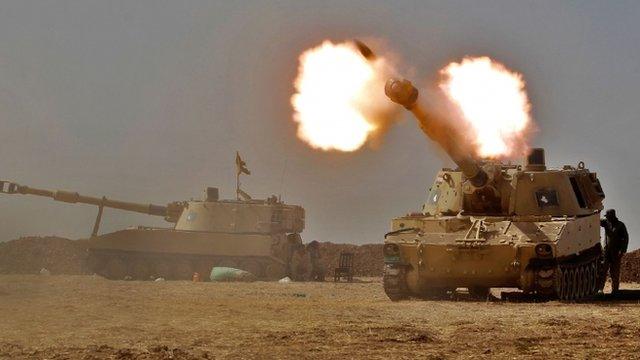
Iraqi forces clearing villages outside Mosul this week
Then there will be questions about reconstruction and rebuilding - and there are questions about whether professionals who have fled the city will really want to come back.
There are deep concerns about how the battle for Mosul might become a proxy for other sectarian disputes and score-settling, with so many opposing forces under the banner of the coalition attacking IS.
There are also fears that politicians, with their own militias, could exploit the battle for their own advantage.
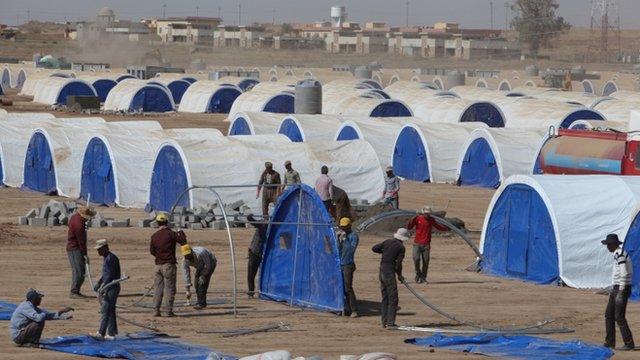
Preparations are being made for refugees who might leave Mosul
Arguments also exist that this is a city exhausted by bloodshed and desperate for peace and moderation.
For two years of the IS occupation and for a decade before, there has been so much conflict, destruction and extremism.
Mosul has been "saturated with violence" and this long "trauma" must end.